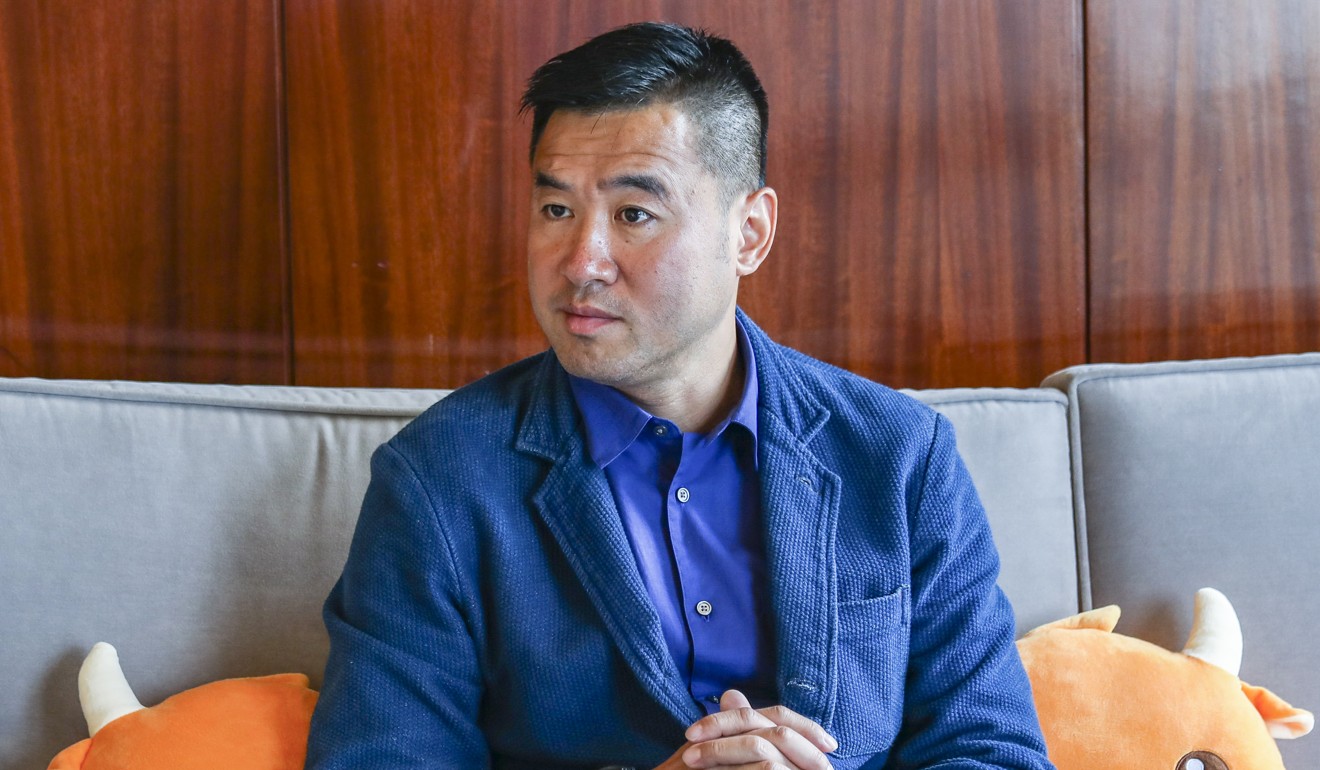
Capital controls? No problem for Tencent-backed Futu, the overseas trading app for Chinese investors
Futu enables Chinese investors to trade overseas stocks using money they have already parked on bank accounts abroad
Chinese stocks officially sank into bear territory last month as domestic investors dumped their equities in the world’s worst-performing market and looked for opportunities overseas.
One innovative company is seizing the opportunity to help them invest in stock markets abroad. And it does not even have to worry about China’s notoriously tricky capital controls.
Futu Securities, which already runs mainland China’s biggest mobile stock-trading app, enables Chinese people to buy and sell Hong Kong and US-listed shares using the money they already have parked in overseas banks.
“People always talk about capital controls in China. But they tend to ignore the fact that after years of development and accumulation, the wealth owned by Chinese people overseas is already huge,” said Dennis Wu, CEO of Futu Securities during an interview on Wednesday in Hong Kong.
“We help mainlanders trade stocks offshore, as long as they have their bank accounts and capital offshore already,” he said.

The company, founded in 2013, obtained a licence for trading US stocks in late December and is now building up a local team there. It plans to launch a bilingual app soon, targeting Chinese people looking to trade shares in mainland China, Hong Kong, and the US.
It will find itself in direct competition with American peers like Robinhood, a commission-free broker based in California.
Total assets on the Futu platform, mainly cash and stocks, have surpassed HK$10 billion (US$1.3 billion), 95 per cent of which is held in overseas bank accounts, Wu said.
In its more established market of Hong Kong, daily trade on the Futu app now accounted for 1 per cent of the total stock market turnover, he said.
During the recent initial public offering of Chinese smartphone maker Xiaomi, about a fifth of the retail investors subscribed via the app, contributing 13 per cent of the total capital invested by individuals.
People always talk about capital control in China. But they tend to ignore the fact that after years of development and accumulation, the wealth owned by Chinese people overseas is already huge
The firm is able to avoid the headwinds brought about by the occasional tightening and loosening of capital-flow restrictions by China’s foreign-exchange authority, he said.
Wu’s company closed a third round of fundraising, worth US$145 million in June 2017, which valued it at above US$1 billion with 380,000 accounts opened and five million app users. The average amount stored in an account stands above HK$100,000.
Wu did not disclose specific valuation and revenue figures for Futu.
Chinese internet giant Tencent led all three rounds of fundraising, and now holds more than 30 per cent of Futu.
By comparison, Robinhood completed its latest round of fundraising in May, which valued the firm at US$5.6 billion. It has 4 million accounts.
Other key investors include Matrix Partners China and Sequoia Capital China.
Wu said the firm had not yet reached the financial requirements for an IPO in Hong Kong. But, backed by fast growth in its business, it could be ready as soon as next year.
Futu’s user, account and turnover numbers have been growing by three to five times annually since 2014, he said.
This rapid expansion has triggered concern among peers in the Hong Kong market.
What Futu does is “aggressive” and is pushing regulatory boundaries, said Jojo Choy, vice-chairman of National Resources Securities.
“They will change the way that brokerages make money. Traditionally we rely on commission and margin financing. But with their massive number of users and trading activities, Futu will get big data that could breed new business.
“It will force local brokerages to find new ways to retain clients.”
The private wealth of Chinese citizens is swelling at the fastest pace in history. Although Beijing has tightened its control of capital outflow in recent years, many rich people had already parked a considerable proportion of their wealth overseas.
A McKinsey report issued in May estimated that 10 per cent of the wealth of China’s high-net-worth individuals is now kept offshore. McKinsey expected the private wealth of Chinese citizens to reach 158 trillion yuan by 2021, with more than 56 per cent of that accumulated in the form of non-cash assets.

